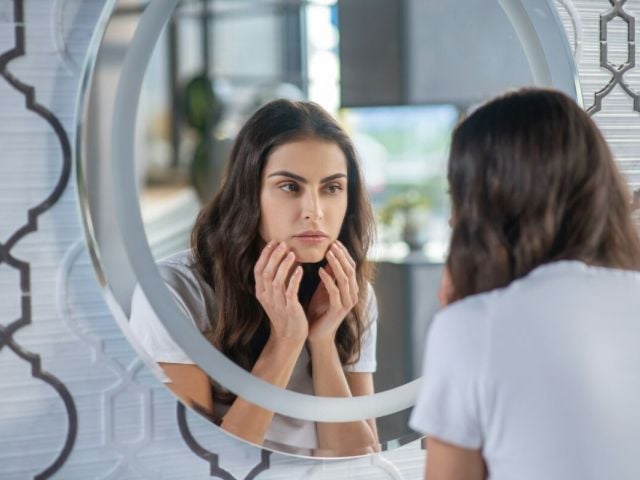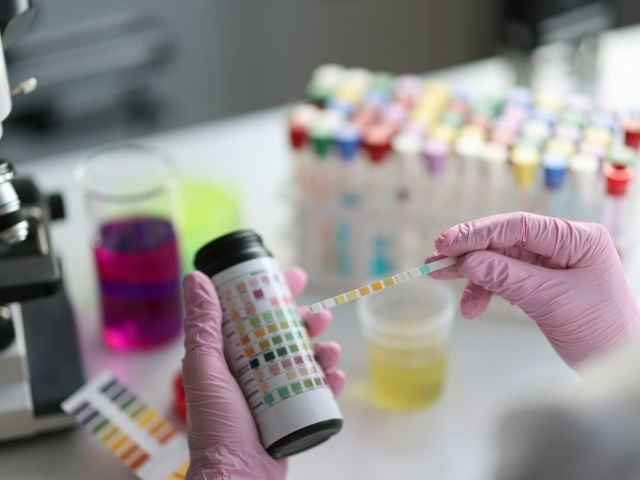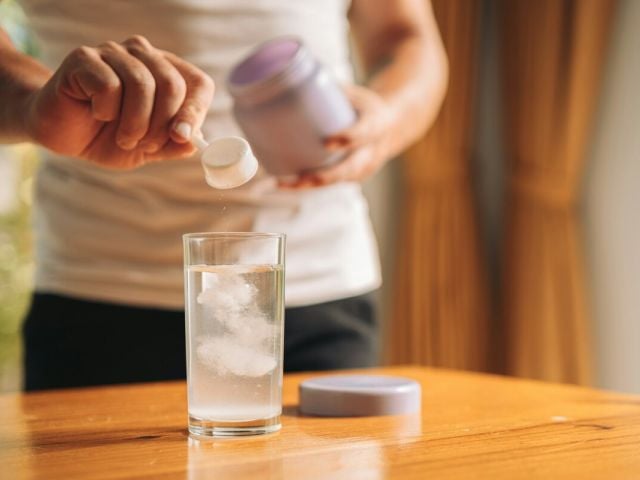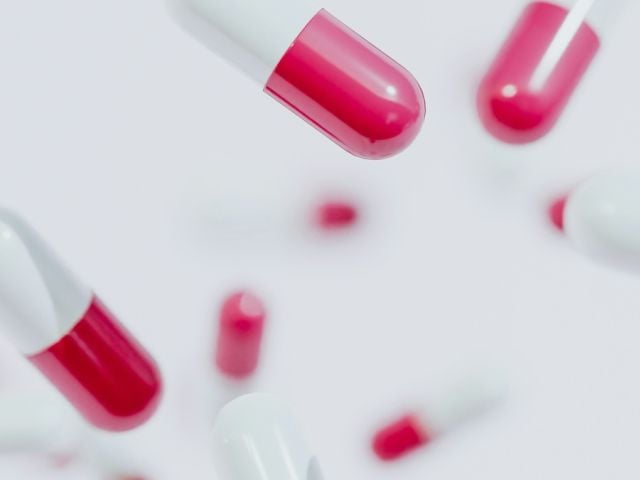
Does Creatine Increase Testosterone Levels?
Creatine’s effects on testosterone is one of the most talked about supplement topics. There are claims everywhere that creatine boosts testosterone levels or affects hormone levels in other ways.
The short answer is that creatine does not raise testosterone for most people. We know this from several decades of research on hundreds of participants in multiple studies.
Key Takeaways
- Creatine supplementation does not meaningfully increase testosterone levels in 10 of 13 studies examining this relationship.
- A single 2009 study found changes in dihydrotestosterone (DHT), but no subsequent research has replicated these findings.
- Creatine works through energy metabolism and cell signaling, not hormonal manipulation.
- Resistance training itself produces small testosterone increases, while creatine may be able to support better training performance.
The 2009 Study That Started the Debate
A single study from 2009 sparked ongoing speculation about creatine and testosterone.
What Did the Research Find?
Researchers examined 20 college-aged rugby players during a 21-day supplementation period. Participants took 25 grams daily of creatine monohydrate for 7 days, then 5 grams daily for 14 days1.
While serum testosterone levels stayed unchanged, DHT levels jumped 56% after the loading phase. The DHT-to-testosterone ratio also increased by 36% after loading and remained 22% elevated during maintenance.
Dihydrotestosterone is a more potent androgen formed when an enzyme converts testosterone to DHT in your body.
Why These Results Need Context
This study has several limitations that get overlooked in fitness discussions.
The sample size included only 16 participants who completed the protocol. DHT levels, while increased, remained within normal clinical ranges for healthy adult males throughout the study.
The creatine group started with DHT levels 23% lower than the placebo group before supplementation even began. This baseline difference raises questions about group comparability.
Most tellingly, no study since has successfully replicated these DHT findings. The research also measured hormones in blood, not in hair follicles where DHT would affect hair growth. No actual hair loss was measured or reported.
What Does Creatine and Testosterone Research Show?

The weight of scientific evidence tells a different story about creatine and testosterone.
The Numbers Don’t Support a Testosterone Boost
Thirteen studies involving 278 participants have investigated the effects of creatine on testosterone levels. Only 3 studies with 60 total participants reported small increases in testosterone. The remaining 10 studies with 218 participants showed no change in testosterone levels2.
A comprehensive 2021 review stated clearly: “The current body of evidence does not indicate that creatine supplementation increases total testosterone, free testosterone, DHT or causes hair loss.”
The most definitive research came in 2025 when researchers conducted a 12-week study of 38 resistance-trained males taking 5 grams per day of creatine. They found no differences in DHT levels, DHT-to-testosterone ratio, or hair health markers between creatine and placebo groups3.
Total testosterone increased in both groups, likely from resistance training alone. This study provided “strong evidence against the claim that creatine contributes to hair loss” and hormonal changes.
| Research Overview | Creatine Group | Placebo Group |
|---|---|---|
| Studies showing no testosterone change | 10 studies (218 participants) | Baseline comparison |
| Studies showing testosterone increase | 3 studies (60 participants) | Baseline comparison |
| 2025 DHT study results | No significant DHT changes | No significant DHT changes |
| Testosterone change in 2025 study | Increased (from training) | Increased (from training) |
Dr. Richard Kreider, one of the world’s foremost creatine researchers who has spent over 30 years studying the supplement, emphasizes that creatine’s benefits stem from its role in cellular energy metabolism. The International Society of Sports Nutrition also states that creatine is not an anabolic steroid, nor does it increase testosterone levels.
How Does Creatine Actually Work?
Taking creatine supplements produces measurable benefits through mechanisms unrelated to testosterone production.
Creatine increases phosphocreatine stores in muscles by 10-40%. This provides more immediate energy for high-intensity exercise by supporting adenosine triphosphate (ATP) production, the primary energy currency of your cells.
The supplement draws water into muscle cells, creating an anabolic signaling environment. This cell volumization may stimulate protein synthesis without changing hormonal levels.
There is evidence that creatine supplementation, when combined with resistance exercise, significantly increases the quantity of satellite cells in muscle fibers. Creatine in one study increased the quantity of satellite cells by 36% in week 4 of training, enabling muscle growth through cellular mechanisms4.
The supplement also has an influence on IGF-1 expression and mTOR pathway activation. These are key elements in muscle protein synthesis that do not depend on testosterone.
A 2024 review found that creatine supplementation combined with resistance training increased lean body mass by 1.14 kg and reduced body fat mass by 0.73 kg more than training alone5. This change in body composition is through energy metabolism, not endocrine manipulation.
Beyond muscle, creatine offers cognitive benefits like improved memory and processing speed. These effects stem from enhanced brain energy metabolism.
Lab-Tested Creatine + ATP
Pure creatine with added ATP for superior muscle gains.
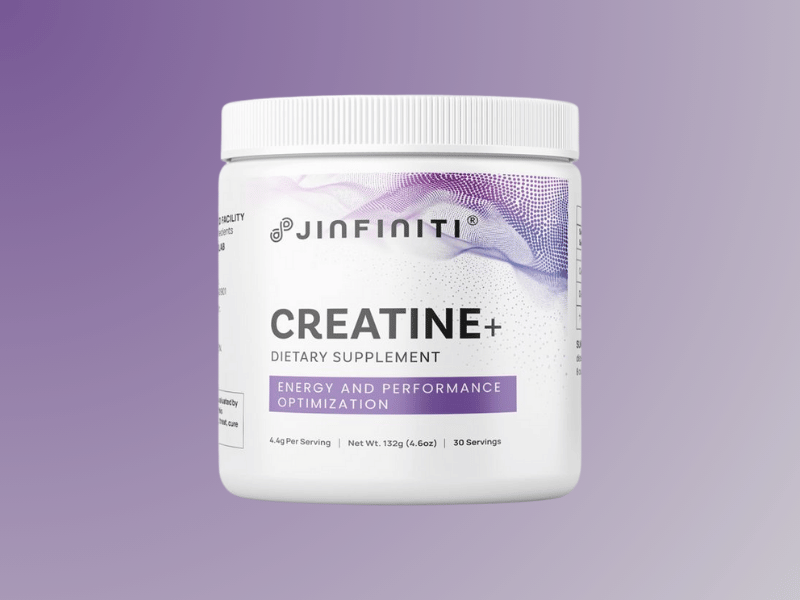
Can Creatine Affect DHT Levels?
The DHT question deserves separate attention given the 2009 study’s influence.
Current evidence suggests creatine does not meaningfully affect DHT in most people. Multiple systematic reviews have examined this relationship and found no consistent pattern of DHT elevation.
The 2025 hair loss study directly measured both DHT and hair follicle health markers over 12 weeks. Researchers found no statistically significant differences between groups taking creatine versus placebo3.
If you’re concerned about hair loss, the science shows this worry lacks support. The effect of creatine on hair remains one of the most persistent myths despite contrary evidence.
What Really Boosts Testosterone?
If you’re looking to increase testosterone naturally, different strategies show more promise than creatine supplementation.
Resistance Training’s Role
Resistance exercise produces acute hormonal responses that creatine does not. A single weightlifting session can increase testosterone by about 21% in young men, though these spikes return to baseline within 30 minutes6.
The magnitude of testosterone response depends on several training variables:
- Larger muscle groups produce greater hormonal changes
- Higher total work volume correlates with bigger testosterone increases
- Training intensity and rest periods between sets affect the response
- Consistent training over time may help maintain testosterone levels that would otherwise decline with age
Long-term resistance training shows more variable effects on baseline testosterone7. Some studies report small increases in resting levels with regular training, while effects appear more pronounced in younger men.
The relationship may work indirectly. Increased muscle mass from training can support healthier hormone profiles over time.
Lifestyle Factors That Matter
Several non-supplemental approaches affect testosterone production more reliably than taking creatine:
- Getting 7-9 hours of quality sleep each night
- Managing stress through relaxation techniques
- Maintaining healthy body weight and composition
- Eating sufficient dietary fat and micronutrients
- Avoiding excessive alcohol consumption
For those with clinically low testosterone levels, testosterone replacement therapy (TRT) under medical supervision remains the most direct option. Testosterone production involves complex biological pathways that supplemental creatine doesn’t directly influence.
🫙 MORE CREATINE
- Creatine does more than build muscle. Discover what research shows about creatine and sexual health in both men and women.
- Prefer gummies over powder? Find out if creatine gummies are as effective or if you’re sacrificing results for convenience.
- Your morning routine matters. Check out our guide to how creatine and caffeine interact and the best timing for both.
Should You Take Creatine Supplements?
Creatine remains valuable for specific goals unrelated to hormonal effects.
You might benefit from creatine if you’re engaged in resistance training for muscle growth. Athletes seeking improved high-intensity exercise performance often see measurable gains. The supplement helps reduce fatigue during repeated bouts of intense activity.
Adults over 40 may find creatine useful for combating age-related muscle loss. The supplement’s ability to support training performance becomes particularly relevant as natural muscle mass declines.
Vegetarians and vegans have lower baseline creatine stores since the compound comes primarily from meat. Women can safely take creatine and often see benefits for both physical and cognitive performance.
The benefits of creatine extend beyond muscle. Research shows improvements in memory, processing speed, and mental performance during stress or sleep deprivation.
If you decide to start taking creatine, a typical protocol involves either 3-5 grams daily or a loading phase of 20-25 grams daily for 5-7 days followed by 3-5 grams daily. Both approaches saturate muscle stores, though loading works faster.
A massive 2025 safety analysis examined 685 studies involving over 26,000 participants. Side effects occurred at the same rate in creatine and placebo groups, with no significant differences in any of the 49 side effects evaluated8.
Bottom Line
Creatine does not boost testosterone levels based on the current body of research. Ten of 13 studies show no testosterone changes, and the single DHT study from 2009 has never been replicated.
The supplement works through well-understood mechanisms involving cellular energy, not hormonal manipulation. If you want to increase testosterone naturally, focus on resistance training, sleep quality, and stress management rather than expecting creatine to affect testosterone production.
Creatine remains one of the most effective supplements for strength, muscle mass, and cognitive function through its role as a key component of ATP production.
Referenced Sources
- van der Merwe, J., Brooks, N. E., & Myburgh, K. H. (2009). Three Weeks of Creatine Monohydrate Supplementation Affects Dihydrotestosterone to Testosterone Ratio in College-Aged Rugby Players. In Clinical Journal of Sport Medicine (Vol. 19, Issue 5, pp. 399–404). Ovid Technologies (Wolters Kluwer Health). https://doi.org/10.1097/jsm.0b013e3181b8b52f
- Antonio, J., Candow, D. G., Forbes, S. C., Gualano, B., Jagim, A. R., Kreider, R. B., Rawson, E. S., Smith-Ryan, A. E., VanDusseldorp, T. A., Willoughby, D. S., & Ziegenfuss, T. N. (2021). Common questions and misconceptions about creatine supplementation: what does the scientific evidence really show? In Journal of the International Society of Sports Nutrition (Vol. 18, Issue 1). Informa UK Limited. https://doi.org/10.1186/s12970-021-00412-w
- Lak, M., Forbes, S. C., Ashtary-Larky, D., Dadkhahfar, S., Robati, R. M., Nezakati, F., Khajevandi, M., Naseri, S., Gerafiani, A., Haghighat, N., Antonio, J., & Tinsley, G. M. (2025). Does creatine cause hair loss? A 12-week randomized controlled trial. In Journal of the International Society of Sports Nutrition (Vol. 22, Issue sup1). Informa UK Limited. https://doi.org/10.1080/15502783.2025.2495229
- Olsen, S., Aagaard, P., Kadi, F., Tufekovic, G., Verney, J., Olesen, J. L., Suetta, C., & Kjær, M. (2006). Creatine supplementation augments the increase in satellite cell and myonuclei number in human skeletal muscle induced by strength training. In The Journal of Physiology (Vol. 573, Issue 2, pp. 525–534). Wiley. https://doi.org/10.1113/jphysiol.2006.107359
- Desai, I., Wewege, M. A., Jones, M. D., Clifford, B. K., Pandit, A., Kaakoush, N. O., Simar, D., & Hagstrom, A. D. (2024). The Effect of Creatine Supplementation on Resistance Training–Based Changes to Body Composition: A Systematic Review and Meta-analysis. In Journal of Strength & Conditioning Research (Vol. 38, Issue 10, pp. 1813–1821). Ovid Technologies (Wolters Kluwer Health). https://doi.org/10.1519/jsc.0000000000004862
- Weiss, L. W., Cureton, K. J., & Thompson, F. N. (1983). Comparison of serum testosterone and androstenedione responses to weight lifting in men and women. In European Journal of Applied Physiology and Occupational Physiology (Vol. 50, Issue 3, pp. 413–419). Springer Science and Business Media LLC. https://doi.org/10.1007/bf00423247
- Riachy, R., McKinney, K., & Tuvdendorj, D. R. (2020). Various Factors May Modulate the Effect of Exercise on Testosterone Levels in Men. In Journal of Functional Morphology and Kinesiology (Vol. 5, Issue 4, p. 81). MDPI AG. https://doi.org/10.3390/jfmk5040081
- Kreider, R. B., Gonzalez, D. E., Hines, K., Gil, A., & Bonilla, D. A. (2025). Safety of creatine supplementation: analysis of the prevalence of reported side effects in clinical trials and adverse event reports. In Journal of the International Society of Sports Nutrition (Vol. 22, Issue sup1). Informa UK Limited. https://doi.org/10.1080/15502783.2025.2488937

Get weekly health insights and exclusive offers by joining our newsletter.

